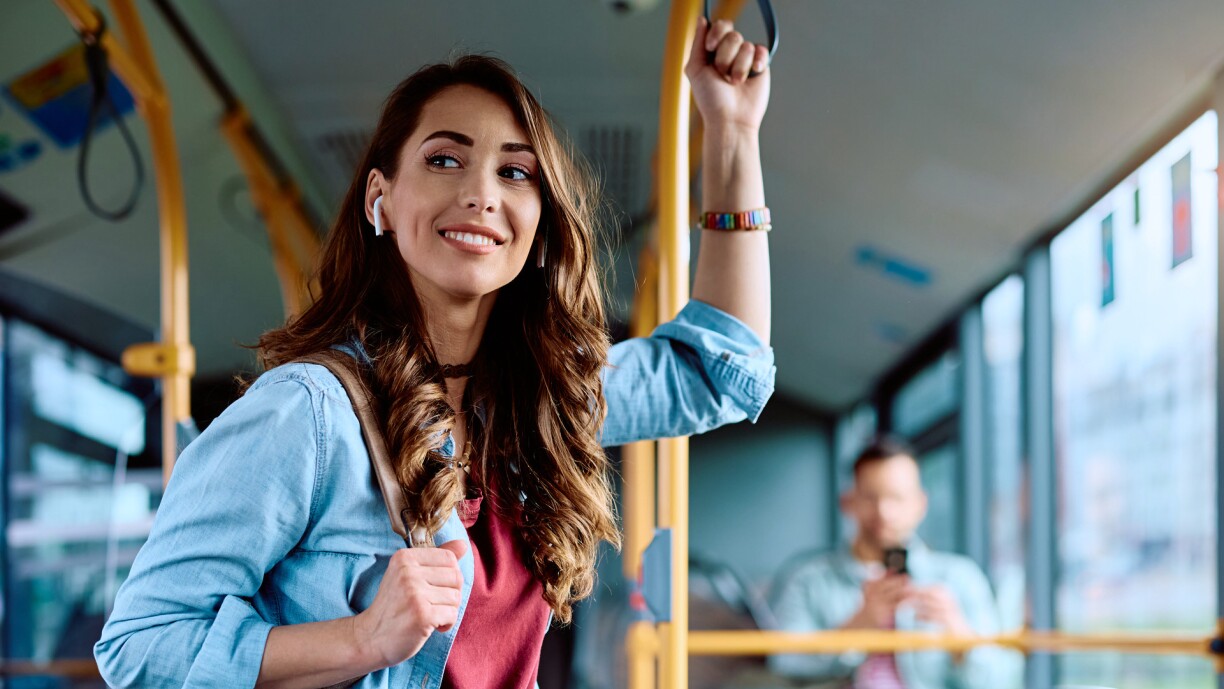
Those times are long gone, and for good reason. As society evolves, so too must public transport etiquette. Below are new guidelines, compiled by experts from the world’s top etiquette research institutes.
It once seemed logical that those waiting to board should make space for passengers who wished to exit. Don’t do this. Research has shown that 99.2 percent of the time, passengers who believe they have arrived at their stop are confused. You should crowd near the door, rush onto the bus or tram, and keep these passengers trapped until a later stop. They’ll thank you.
In the old days, it was considered polite or even mandatory to offer seats to pregnant women, the elderly, and those with reduced mobility. Not anymore. Medical experts now say these passengers are the most in need of stretching and balancing exercises. Do them a favor and make them stand while you – a healthy 22-year-old with some crisps to noisily eat and TikToks to watch – sit down.
Conventional wisdom used to say it was rude to place your shopping bag, backpack, or purse on a seat, which prevented someone else from using it. However, advancements in breathable synthetic fiber technology means that more and more people now use bags to carry smaller-sized friends and loved ones. Imagine angrily insisting that a passenger move her handbag, only for a three-year-old to pop out and say, “hey, find your own seat”. To be on the safe side, assume that all bags have a tiny person inside.
Once upon a time, accidentally touching someone’s hand while you both gripped the pole and struggled to maintain balance was viewed as awkward, with both parties quickly moving their hands and looking away. Those days are over. Experts say that most people are starved for human contact and that this sort of touch does us some good. Next time it happens, look the other person in the eye and say, “mmm, that was nice”.
In the past, part of the attraction of public transport was that it offered a break from the chaos of domestic life, as most couples had between 20 and 30 children, and the idea of peace and quiet at home was a fantasy. Nowadays, most people are single, and many couples don’t have kids. Those couples who do have kids usually stop at 1.5, and those 1.5 children spend most of their free time on devices, silently immersed in virtual worlds.
For many people, being on a bus is the only opportunity to experience life as it once was, in all its stress-inducing, deafening glory. Conclusion: don’t hold back. Talk on the phone at maximum volume. Instead of whispering to your friend sitting next to you, shout. Laugh hysterically without a prompt. Blast music from any device you can. While fellow passengers may give you a dirty look, deep down inside, they’ll appreciate your efforts.